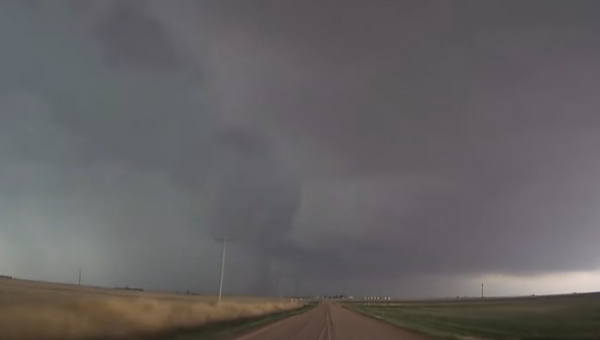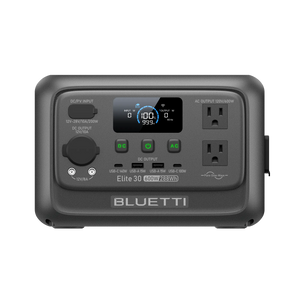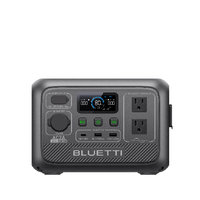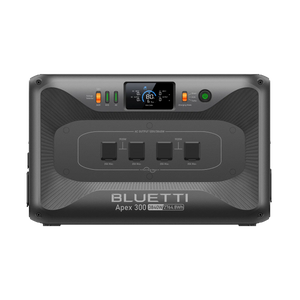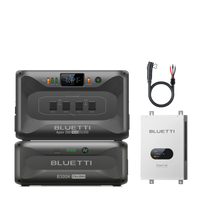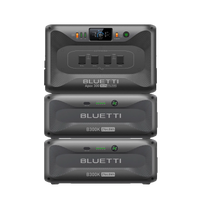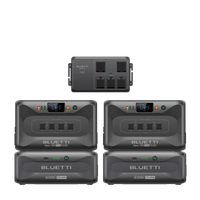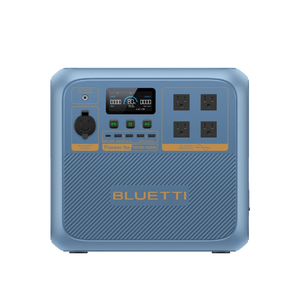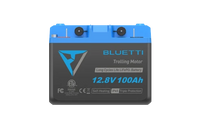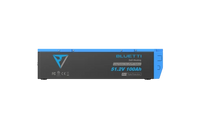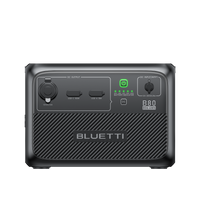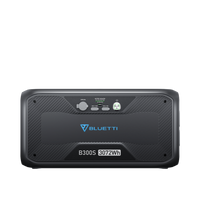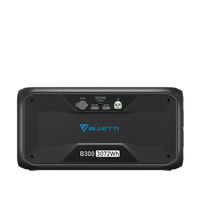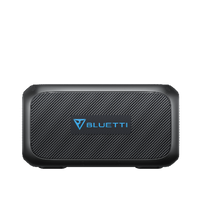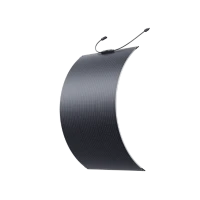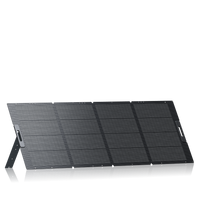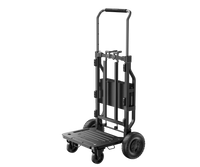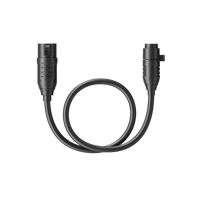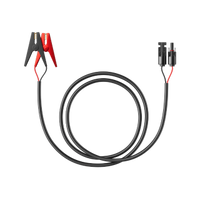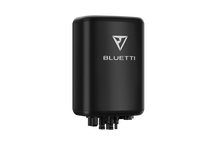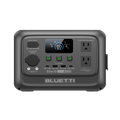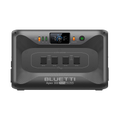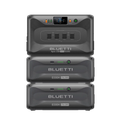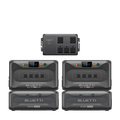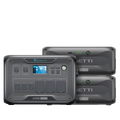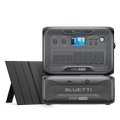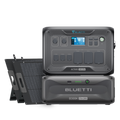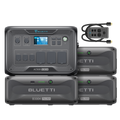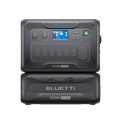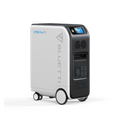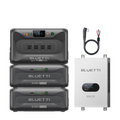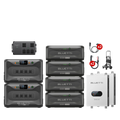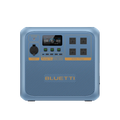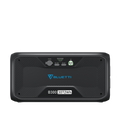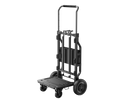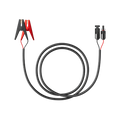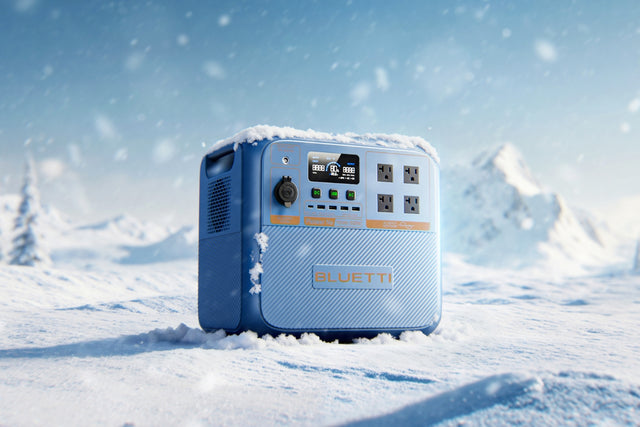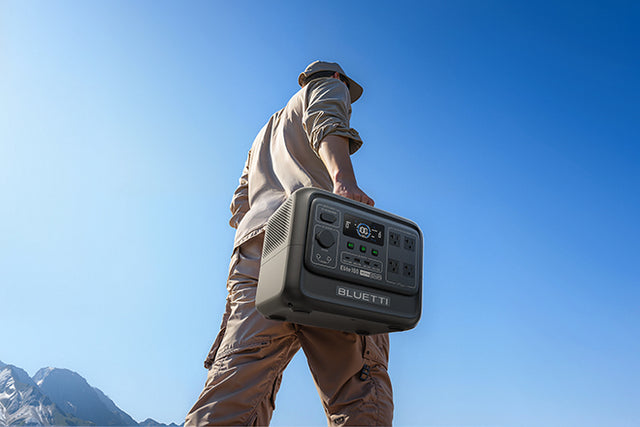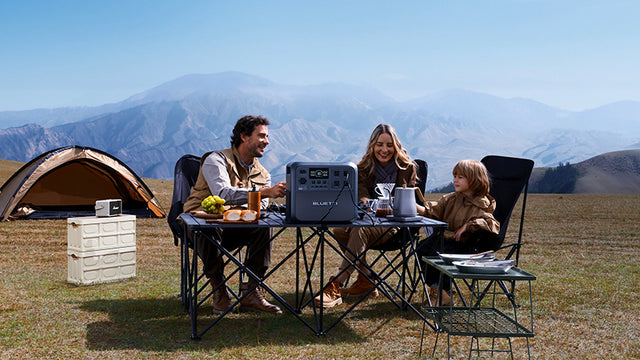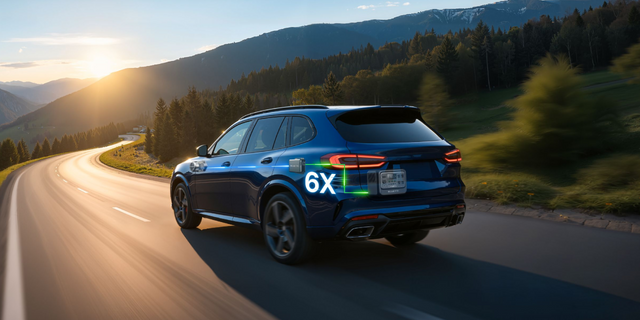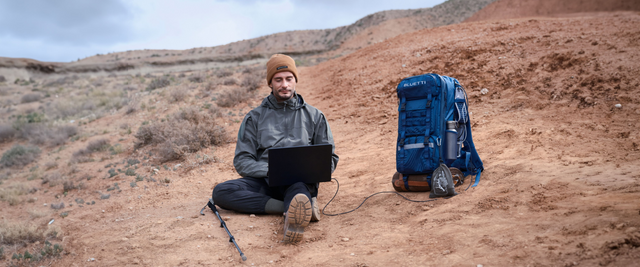Your cart is empty
Shop our productsLiving in a tiny house off-grid is a unique lifestyle choice that requires careful planning and resource management. If you are considering off-grid living in a tiny house on wheels, one of the most critical aspects to think of is your power source. There are two main options for powering your tiny house on wheels: portable solar generators and propane generators.
Portable solar generators use solar panels to convert sunlight into electricity, which is then stored in a battery bank for later use. This makes solar generators an environmentally friendly power source that does not produce any emissions and has low maintenance requirements.
Propane generators, on the other hand, use propane gas to generate electricity. Propane is a clean-burning fuel that produces fewer emissions than gasoline, making it a popular option for off-grid living.
In this article, we discuss the pros and cons of using a portable solar generator and propane generator as an off-grid power source for your tiny house.

What Is a Portable Solar Generator?
Solar generator refers to a technological device that can be powered by the energy from the sun.
These advanced systems work by integrating solar panels, a battery, an inverter, and a charge controller into a compact system that captures, stores, and converts solar power into a usable form of electric current.
What Is a Propane Generator?
Propane generators typically consist of an engine, a propane fuel tank, an alternator, and a voltage regulator.
When the generator is turned on, the engine burns propane gas to generate mechanical energy, which is then converted into electrical energy by the alternator. The voltage regulator ensures that the electricity generated is of a consistent voltage and frequency.
Portable Solar Generators vs. Propane Generators for Off-Grid Tiny House Living
In this section, we compare portable solar generators with propane generators over three main areas: dependability, environmental-friendliness, cost, and portability.
1. Dependability
Solar generators are generally very reliable, as they don't have any moving parts and require very little maintenance. Once installed, they can operate for years with minimal upkeep. However, solar generators depend on the availability of sunlight to generate power, so they may not be suitable in areas with low sunlight or during extended periods of cloudy weather. They may also be less reliable during the winter months when daylight hours are shorter.
Propane generators are also generally reliable but require regular maintenance, such as regular oil changes and fuel filter replacements. Propane generators can provide power continuously for many hours as long as there is a steady supply of propane gas. However, propane generators are dependent on the availability of fuel, and if the propane supply runs out, the generator will no longer provide power.
Another major downside of using a gas-powered generator is that you depend on external fuel sources. There's a chance of gas running out during a natural disaster. Plus, continuously paying for gas can be quite expensive over time. Propane-powered generators also emit dangerous fumes, which means you need to place them outside in a well-ventilated area.
Ultimately, a solar or propane generator's reliability will depend on the specific circumstances of its use. Solar generators may be more reliable in areas with high levels of sunlight, while propane generators may be more reliable in areas with limited access to solar energy.
2. Environmental-Friendliness
Gas-powered generators emit air and noise pollution, releasing harmful pollutants such as carbon monoxide that pose a danger to health and the environment. Because they need to be installed outside for safety reasons, they can be an unsightly addition to your tiny house on wheels and produce excessive noise.
In contrast, solar-powered generators produce no air pollution and can significantly reduce your carbon footprint, especially when powered by solar panels or plugged into an outlet. Our latest Bluetti solar generators feature modern and sleek designs that you can place in various locations without causing excessive noise or interfering with the appearance of your tiny house.
3. Cost
One significant advantage of a solar generator is that it uses a free power source - the sun! As long as the system remains undamaged and the sun shines, you will have access to power. While a solar-powered generator may have a higher initial cost than a propane generator, the latter's lifetime cost is often equal to or exceeds that of a solar-powered one. This is due to a few key factors:
- Maintenance and Service: Solar-powered generators typically require minimal maintenance, whereas propane generators need yearly service to ensure they are safe, functional, and clean.
- Fuel Costs: A solar generator recharges for free using the sun's energy, while a propane generator requires costly fuel to work.
- Incentives: There are various local, state, and federal incentives available for using solar energy. On the other hand, gas-powered generators typically do not have any monetary incentives.
4. Space Usage and Portability
In a tiny house, space is a premium commodity, so it's crucial to choose a solar generator that doesn't take up too much space while still meeting your energy needs. The generator should also be lightweight and easy to move, as you might like to travel and explore new locations in your tiny house on wheels.
Propane generators are typically portable, but they are heavy and bulky. They require a fuel source, so you must carry propane tanks with you. Propane tanks can be quite heavy and require proper handling, transportation, and storage, which can be inconvenient. Additionally, propane generators produce exhaust and heat, so you will have to place them outdoors in a well-ventilated area, which can limit their portability.
On the other hand, solar generators are much lighter and more compact, making them highly portable. They don't require any fuel source, which means you don't need to worry about carrying heavy tanks or running out of fuel. They are also silent and do not produce any exhaust or heat, which means you can use them inside your tiny house on wheels. This increases their flexibility and portability significantly.
How to Choose the Right Solar Generator for Your Tiny House on Wheels?
Choosing the right solar generator for your tiny house allows you to enjoy a sustainable and self-sufficient lifestyle without sacrificing modern conveniences. Here are some steps you can take to find the right solar generator for your tiny house lifestyle.
Step #1 – Identify Your Needs
The first step in choosing the right solar generator for your tiny house is to consider your energy needs meticulously. You'll have to assess how much power you require on a daily basis to run your appliances and devices, such as lights, water pumps, and refrigerators.
You can determine your power needs by identifying the electrical appliances and devices that you plan to power with the solar generator. You can then make a list of the wattage requirements for each item and add them up to figure out the total wattage you need.
Once you have determined your energy needs, you can choose a generator with the appropriate solar panel size, battery capacity, and inverter power output.
Step #2 – Consider the Efficiency and Capacity of Solar Panels
The solar panel capacity is the second thing you need to consider for off-grid living in a tiny house. The solar panel capacity is the amount of power generated by the solar panels included with the solar generator.
You can determine the minimum solar panel capacity you need by referring to the total wattage of the appliances you calculated in the previous step. It's important to note that the solar panel capacity should match or exceed your power needs. If the solar panel capacity is lower than your power needs, the solar generator will not be able to generate enough power to meet your needs, and you may experience power outages.
In addition to the solar panel capacity, you should also consider their efficiency. The efficiency of a solar panel refers to the percentage of sunlight converted into electricity. The higher the efficiency, the more power the solar panels can generate from a given amount of sunlight.
Higher-efficiency solar panels can be more expensive, but they may be worth the investment if you need to maximize the power output from a limited amount of space on your tiny house roof. Additionally, if your tiny house is located in an area with limited sunlight, you may need higher-efficiency solar panels to generate enough power for your needs.
Step #3 – Pay Attention to the Battery Capacity and Type
The battery capacity is the next thing you need to consider for your portable solar generator. This refers to the amount of energy that can be stored in the battery of the solar generator.
Battery capacity is important because it determines how much energy you can store and use when the sun is not shining, such as at night or on cloudy days. If your solar generator's battery capacity is too small, you may not have enough energy to power your appliances and devices during these times.
It's important to note that the battery capacity should also match the solar panel capacity. If your solar panel capacity is larger than your battery capacity, you may generate more power than you can store, which will result in wasted energy. On the other hand, if your battery capacity is larger than your solar panel capacity, you may not be able to charge your battery, which can reduce its lifespan fully.
Moreover, you should consider the type of battery used in the solar generator. Lead-acid and lithium-ion batteries are the most common types of batteries used in solar generators. Lead-acid batteries are less expensive but don't last long and need more maintenance. In contrast, lithium-ion batteries are costlier but have a longer lifespan, are lighter, and are easier to maintain.

Wrapping Up
At Bluetti, we have a vast range of portable solar generators and solar power stations that you can use in your tiny home on wheels. Our generators are available in several different capacities to make sure they meet all your needs in the best possible way. Visit our website to check our range of products here.
Shop products from this article
Be the First to Know
You May Also Like

Deadly Flooding Devastates U.S. South and Midwest — What You Need to Know

BLUETTI Teams Up with Leave No Trace to Power Sustainable Outdoor Adventures
